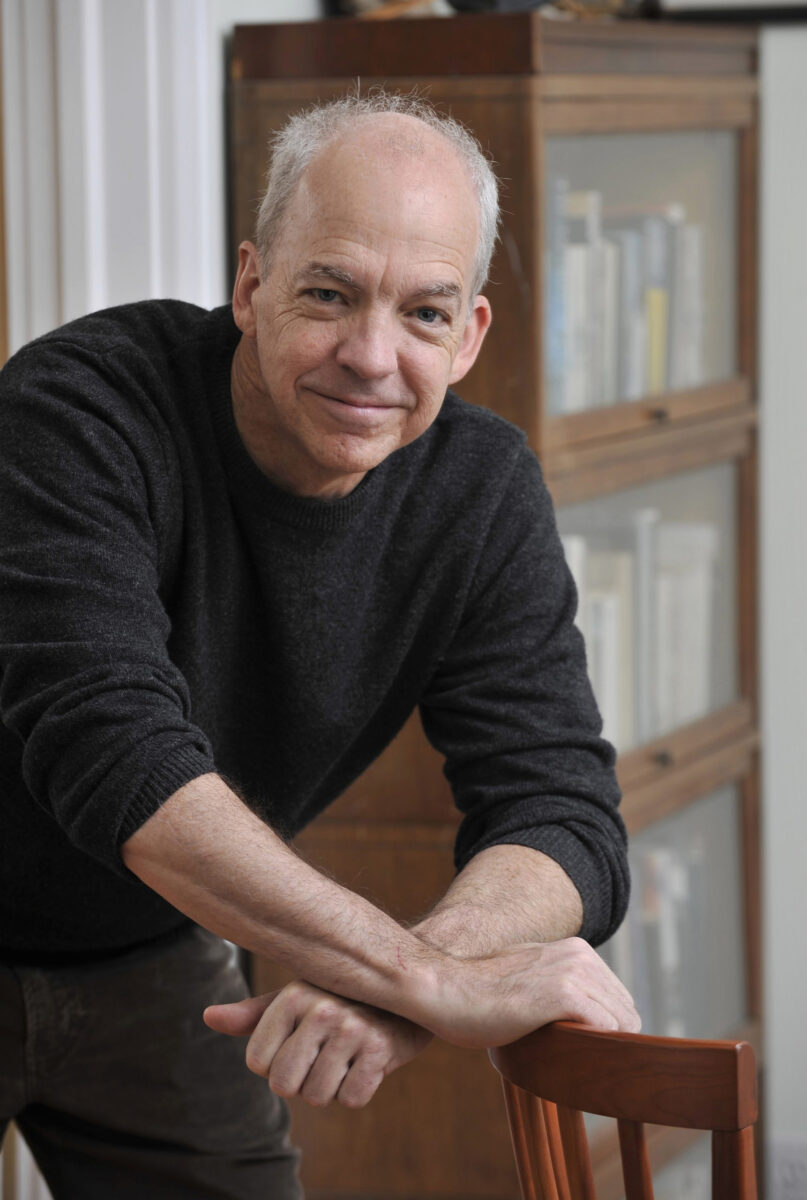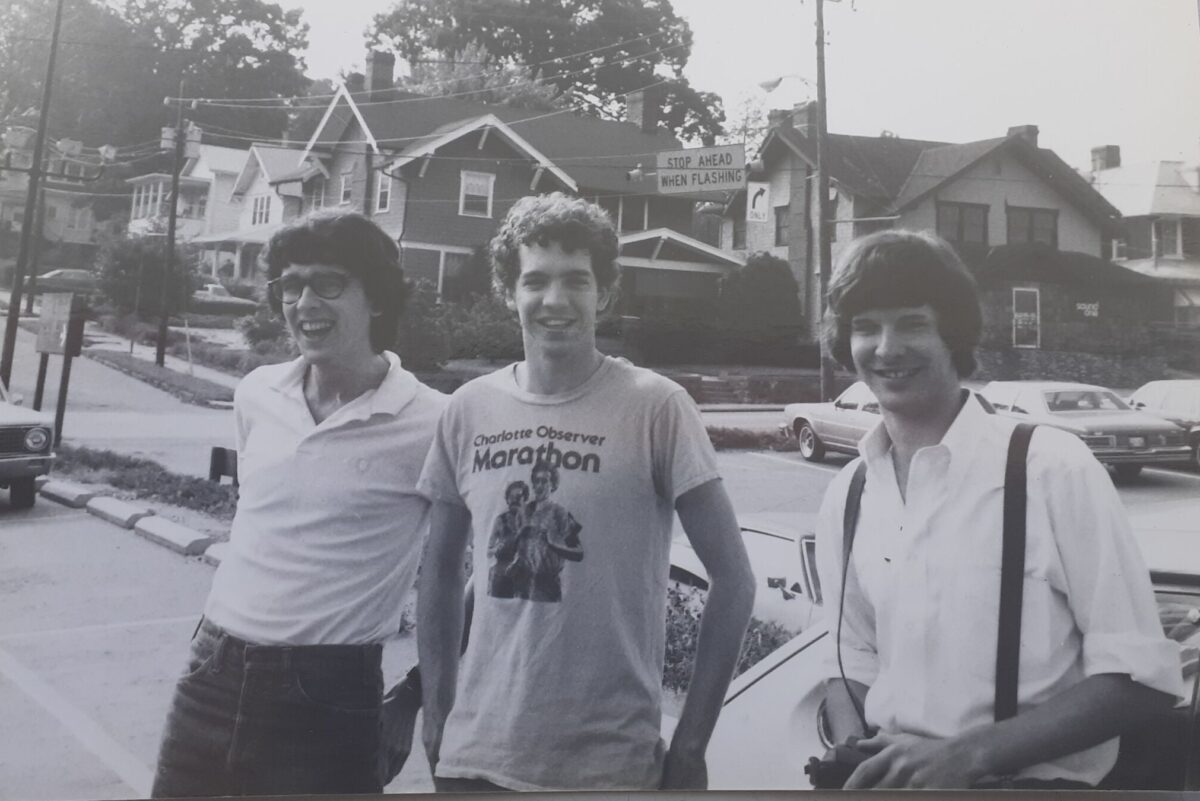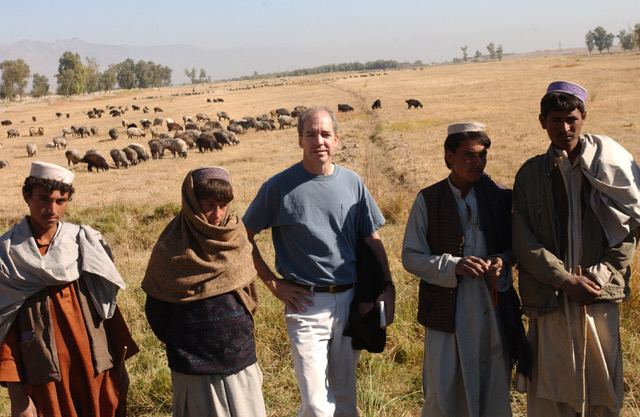The Writing Habit
Posted on Nov. 16, 2023
(Photo: Dan Fesperman ’77)
Even before Dan Fesperman ’77 became a novelist, he knew how to find a story. He knew how to set a scene and how to craft a narrative with clarity and flair.
And he already knew how to write.
The newsroom had been his teacher, and before that, Carolina, where a love of storytelling led him to UNC’s Journalism School and on to a newspaper career that culminated as a foreign correspondent for The Baltimore Sun. His reporting work overseas — covering conflicts, including the 1990 Gulf War and the rise of capitalism in Eastern Europe — laid the groundwork for his current job as a fiction writer.
Since the 1990s, Fesperman has written 13 critically acclaimed novels of intrigue and suspense inspired by his time as a journalist. His latest, Winter Work, published in July 2022, follows a CIA officer and former East German secret police officer fighting for their lives after the fall of the Berlin Wall.
After Fesperman found writers such as Kurt Vonnegut and Eldridge Cleaver during his high school years in Charlotte, the writing bug bit him hard at UNC when he joined The Daily Tar Heel and decided to major in journalism. His natural curiosity and interest in human nature’s complexity drew him to a job where he’d get to ask lots of questions.

After Fesperman found writers such as Kurt Vonnegut and Eldridge Cleaver during his high school years in Charlotte, the writing bug bit him hard at UNC when he joined The Daily Tar Heel and decided to major in journalism. (Photo: Dan Fesperman ’77)
And ask questions he did, at early career stops that included feature writing at The Fayetteville Times and business writing at the Miami Herald. But he always harbored ambitions of working abroad.
“I always knew that’s what I wanted to do. I wanted to see the world as a journalist,” Fesperman said. He got a chance with The Baltimore Sun, where he worked from 1990 to 2005. He covered both the Gulf War and the U.S. War in Afghanistan and was assigned as the newspaper’s Berlin bureau correspondent from 1993 to 1996. Along the way, he married Liz Bowie, a former Baltimore Sun education reporter who now works for The Baltimore Banner. The couple live north of the city and have two grown children.
His former Baltimore Sun colleague Laura Lippman noted Fesperman’s well-rounded writing strength. “Dan was the reporter who was the whole package. He was a great reporter, and he was a great writer,” said Lippman, also a journalist-turned-novelist. “I can’t think of a story I wouldn’t put him on.”
Fesperman covered the Bosnian War, which inspired the idea for his first book, the 1999 novel Lie in the Dark, which follows a homicide investigator in Sarajevo, who’s looking for the killer of a government official amidst the chaos of war.
While covering conflicts as a reporter, Fesperman had always been amazed at the everyday heroism of ordinary people. “You see people at their absolute best and their absolute worst — it’s the great tester of people. It takes away any kind of mask they would have had, and you find out who they really are,” he said.
As a reporter, Fesperman also faced the danger of conflict himself. In Afghanistan, gunmen stopped two vehicles in his convoy and killed four journalists. Fesperman’s quick-thinking driver swerved around the armed men. “The rules of the road in those situations are that you basically let them stop you, let them rob you, so we thought our driver had screwed up, but it turns out he saved our lives,” Fesperman said.
He said his assignments abroad kept him so busy he rarely had time for fear.

While covering conflicts as a reporter, Fesperman had always been amazed at the everyday heroism of ordinary people. (Photo: Dan Fesperman ’77)
“As a journalist, Dan always immersed himself in often exotic and sometimes dangerous foreign settings to understand the parties, their conflicts and the human cost,” said author Scott Shane, a former Baltimore Sun colleague. “Since he started writing novels full time, I’ve read every one and have appreciated that he does the same research he might for a newspaper story: He visits the scene, talks to various locals, reads up on the history, interviews experts.”
For Fesperman, fiction writing came with its own set of challenges. “In a novel you have to create so much of that raw material yourself — to build characters, plot lines, scenes — and in doing so I suppose you end up having to say something in your own narrative voice about how you believe the world works,” he said. “It’s liberating, but in some ways, it comes with an even greater burden for authenticity.”
Fesperman used his love of UNC basketball to build a detail in one of those worlds. A war crimes investigator in his second novel, The Small Boat of Great Sorrows, keeps a UNC men’s basketball calendar in his office.
Carolina classmate Chip Pearsall ’78 recalled Fesperman’s student years. “Even back then, it was obvious Dan had what it took to succeed — a combination of drive, ambition, talent and dedication to the craft that was notable even among some very talented peers in the journalism school,” he said.
“I always knew that’s what I wanted to do. I wanted to see the world as a journalist,” Dan Fesperman ’77 said. While covering war and other conflicts as a reporter, he was amazed at the heroism of everyday people. “You see people at their absolute best and their absolute worst — it’s the great tester of people. It takes away any kind of mask they would have had, and you find out who they really are.”
Fesperman said that his professors at the journalism school— the legendary Jim Shumaker ’49 was a favorite — helped nurture the skills that have taken him from UNC to around the world, and that those same traits feed his current success.
Shumaker, who was the inspiration for the popular comic strip Shoe, about a newspaper staff portrayed by birds and created by editorial cartoonist Jeff MacNelly ’69, gave Fesperman some of the best writing advice he has ever received. When Shumaker learned Fesperman was trying to break into fiction writing, he advised Fesperman, an avid runner, to approach writing the way he did jogging, to make it a habit he did every single day. Writing is work after all.
Fesperman took the advice, leaving journalism in 2005 to write fiction full time. He’s now working on his 14th novel.
“The major leap in writing a novel is thinking that you are going to be able to finish it,” Fesperman said. “The only way to do anything is to just keep trying.”
Learn more about Fesperman’s work at danfesperman.com.
— Beth Hatcher ’02
Thanks for reading the Carolina Alumni Review
Carolina Alumni members, sign in to continue reading.
Not yet a member? Become one today.
